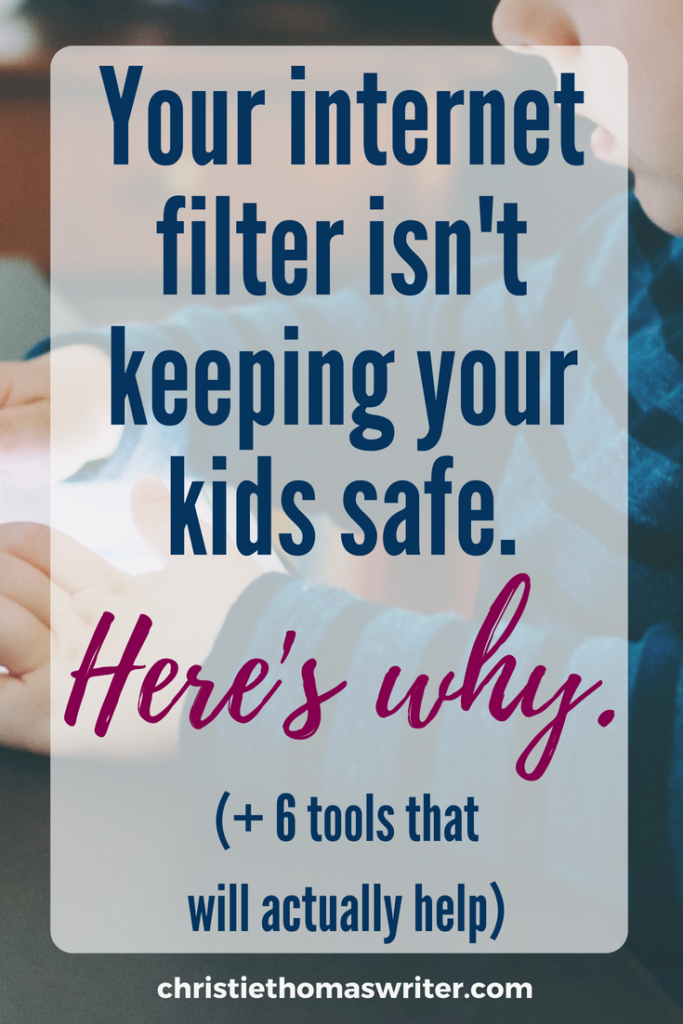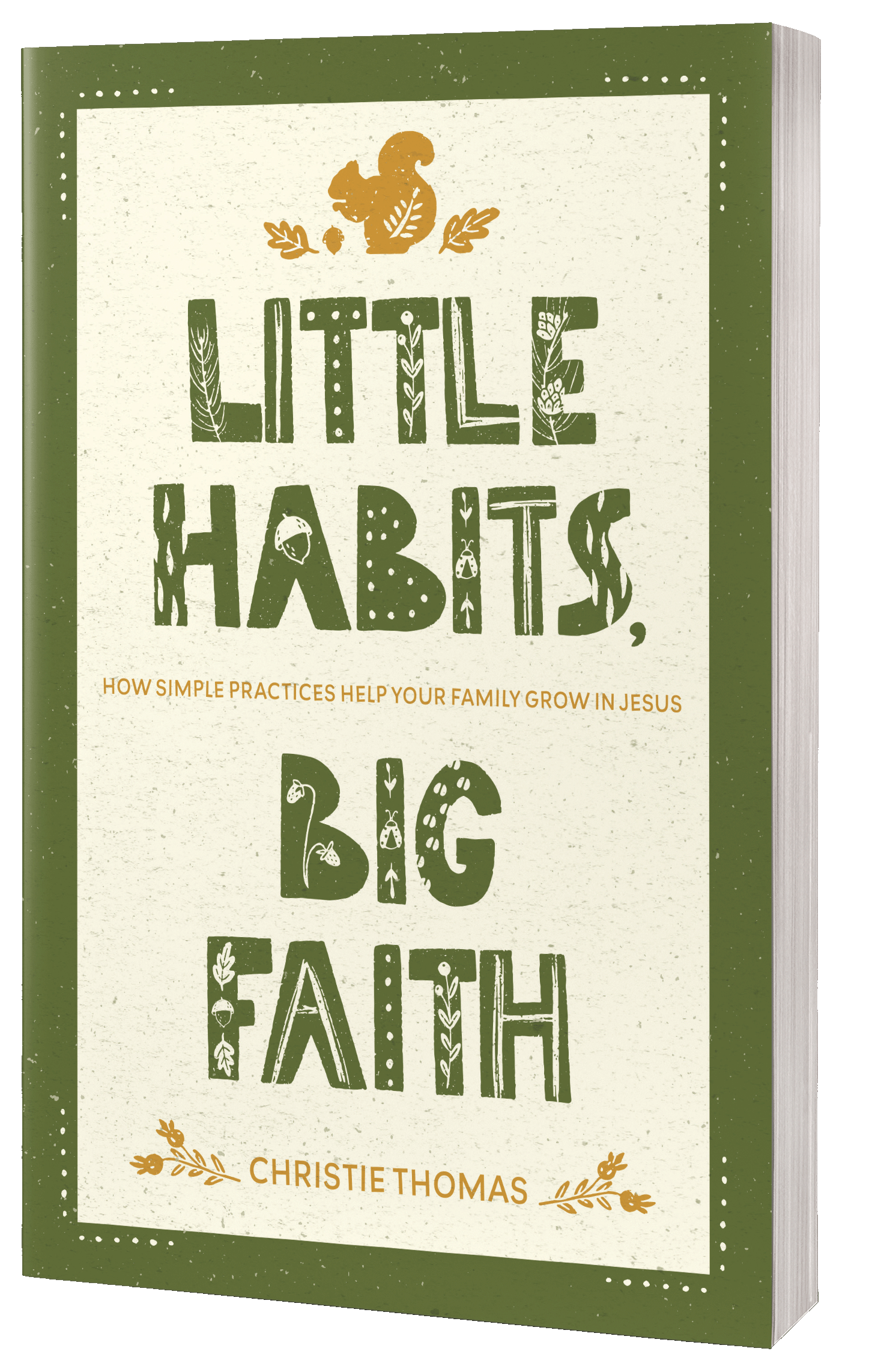A recent study from the Oxford Internet Institute shows that an internet filter is NOT an effective way to protect our children and teenagers from online pornography. In fact, if you look at their data, it almost seems that the reverse is true – that when caregivers have an internet filter, kids are slightly MORE likely to interact with various types of online pornography.
Whoa. I can hear you freaking out. I know I did. There’s hope, but first, you need to confront the facts.
“A pair of studies reporting on data collected in 2005, before the rise of smartphones and tablets, provides tentative evidence that Internet filtering might reduce the relative risk of young people countering sexual material. A more recent study, analyzing data collected a decade after these papers, provided strong evidence that caregivers’ use of Internet filtering technologies did not reduce children’s exposure to a range of aversive online experiences including, but not limited to, encountering sexual content that made them feel uncomfortable. Given studies on this topic are few in number and the findings are decidedly mixed, the evidence base supporting the widespread use of Internet filtering is currently weak.”
From their findings, it looks like in 2010, an internet filter helped. But with this generation of kids that have the internet in their back pockets, that’s no longer the case.
These researchers went into the study with the hypothesis that having an internet filter would still have a high protective effect, and were surprised to find their predictions were very wrong.
“We did not find confirmatory evidence that filters were effective for seeing nudity, private parts, people having sex, or any of the four types in line with our preregistered hypotheses. In fact, contrary to our predictions we found evidence in the direction opposite to what we hypothesized in one case: households reporting using filters were more, not less, likely to have an adolescent who reported having seen violent pornography in the past 6 months.”
One of the reasons for this is that children and teens no longer limit internet access to home and school. And practically-speaking, there’s no way to filter device they see in any given day. In fact, “results indicated that between 17 and 77 households would need to be filtered to prevent a young adolescent from encountering online sexual material.”
What does this mean?
“In other words, more than 99.5 percent of whether a young person encountered online sexual material had to do with factors beside their caregiver’s use of Internet filtering technology.”

Why do we see this negligible effect of using an internet filter?
Because an internet filter is a bandaid on a problem, not the actual solution.
Putting up an internet filter and expecting that it will take care of your child’s online filtering needs is similar to putting your child in front of a TV and expecting that they can get all their educational needs from Baby Einstein.
Internet filters don’t adapt fast enough. They rely on an algorithm to detect when a site is inappropriate, so they sometimes end up under filtering. You’ve probably noticed yourself that some sites have inappropriate material that doesn’t get flagged as such. For example, there’s a sick person out there right now who’s dubbing inappropriate content over a kids show and posting it to YouTube. Your internet filter might not catch that.
Internet filters won’t block sexting, friend requests from strangers, or your teenager making his/her own videos.
Internet filters don’t extend to your kids’ friend’s house, or the iPad that kid down the street is using to show off all the interesting things he can Google.
Here’s the thing. When it comes to the internet, you have a big toolbox to use to help your children become responsible citizens without scarring them for life.
An internet filter is only one tool in your toolbox.
If I gave you a toolbox with multiple tools and asked you to build a house, would you only pick one tool? Which would you pick? The hammer? The saw? The duct tape? (That last one would be my choice!)
Say it with me now: An Internet filter is only one tool in my toolbox.
In the study, they wrapped up by saying that this study should prompt us to look into “other preventative methods, such as age verification tools, or educational strategies to support responsible behavior online and promote resilience.”
Did you read that?
You and I probably can’t create age verification tools.
But we can come up with educational strategies that support responsible behaviour online and promote resilience.
So let’s talk about the OTHER tools in the toolbox. Most of them have to do with conversations we all need to have with our kids, and they all help our kids develop a strong internal filter, which is WAY more effective than any external filter.
1) If you’re a Christian parent, you can pray.
You might look at this and think, “well that’s dumb”. And I wouldn’t blame you. We underestimate God all the time. But let me tell you about the God I know. He is love, and there is no fear in love, which means that this whole pornography business doesn’t scare him. I also know that he moves in response to the prayers of his people. (PS You can pray even if you’re not a Christian parent. God listens to us all!)
So people, let’s get praying.
TOOL: If you want some prayer suggestions, download my prayer ideas and templates right here.
2) Teach your kids about smart internet practices.
Our kids need to know how to be smart. I talk more about what the internet does to our brains in this article, but it’s crucial that they learn to make wise decisions online.
TOOL: Google has a great tool to teach kids how to be smart online. Play this game WITH your kids – don’t just turn it on and let them play. Do it together so you can have conversations.
3) Teach your kids about healthy sexuality.
Talking to your kids about this had a dual effect.
A) they know they can talk to you about their questions, instead of googling them. (imagine what kind of search results they might pull up!)
B) They know what’s healthy, and what’s not. The reason we have fewer smokers today than we did 40 years ago is that our kids know what’s healthy, and what’s not. Let’s teach them what’s healthy, so they can identify what’s not.
TOOL: The Talk is for both boys and girls, and is a great jumpstart into conversations about sexuality. This article has many more book ideas to get you started.
4) Talk to your kids about the addictive effects of pornography, and what to do when they do encounter it.
If we go back to the smoking example, my kids know what a smoker’s heart looks like, and they don’t want their own hearts to get black and shriveled. Teach your kids that brain science says that we can get addicted to pornography, and that can be very bad for our lives, like all addictions.
TOOL: Good Pictures, Bad Pictures is the best book on this topic I’ve ever seen.
5) Pay attention to your kids when they’re online.
In the early years, make sure all app use and online use is near you so when they encounter things, you can have conversations.
For example, my son was playing HeyDay, which looks like a kids game. But it turns out that there’s an open chat feature on this game, and it’s actually intended for 18+! I didn’t realize that until I got suspicious about why it wouldn’t work on airplane mode. That gave me a great chance to talk to him about the fact that the people he was trading with were real people. We disabled the chat feature, and are paying more attention to the apps he uses
TOOL: When your kids want a new app, quickly check out the reviews on Common Sense Media to make sure it’s actually appropriate for children.
6) Help your kids learn respect.
Helping our kids develop a strong internal filter means helping our kids develop healthy self-esteem. When they respect themselves, they’re more likely to respect others and see the disrespect portrayed in pornography.
When our girls respect themselves, they won’t need to send nude pictures to boys in their class. Help your boys develop a deep respect for women, for the same reason.
TOOL: The best tool to teach respect is to model it in front of your children! Dad, show your kids what respecting women truly looks like. Mama, respect yourself, and call out men and boys who belittle you or your daughters. If there are no respectful men in your boys’ lives to model this, I urge you to do whatever it takes to find some good role models for them.
So there you have it. There are so many tools in your toolbox, but the best way to help your kid stay safe and pure online is to use them all, together.
By all means, use an external filter.
But don’t forget to pair it with a powerful internal filter in your child’s mind.
**EDIT: This post was originally written with the dangers of internet pornography in mind. But there are other dangers as well, from online video games, to garbage that is snuck into videos on YouTube kids. Things that our kids can’t unsee. Most of the tips above are fantastic for those purposes as well, but I recently recorded a Facebook Live with my son where we talked about the current issue: the Momo Challenge.
In the Momo Challenge, this creepy character butts into your child’s innocent programming on YouTube kids, and asks them to do challenges. It tells them that if they don’t, or if they tell an adult, Momo will kill their parents. From what I hear, multiple suicides have now been linked to this challenge.
Watch the video here:
There are affiliate links in this post, which don’t cost the buyer anything extra to use but they provide me with a small commission. I don’t recommend any products I don’t use and love!






0 Comments